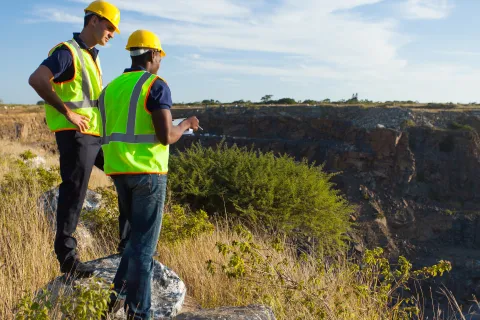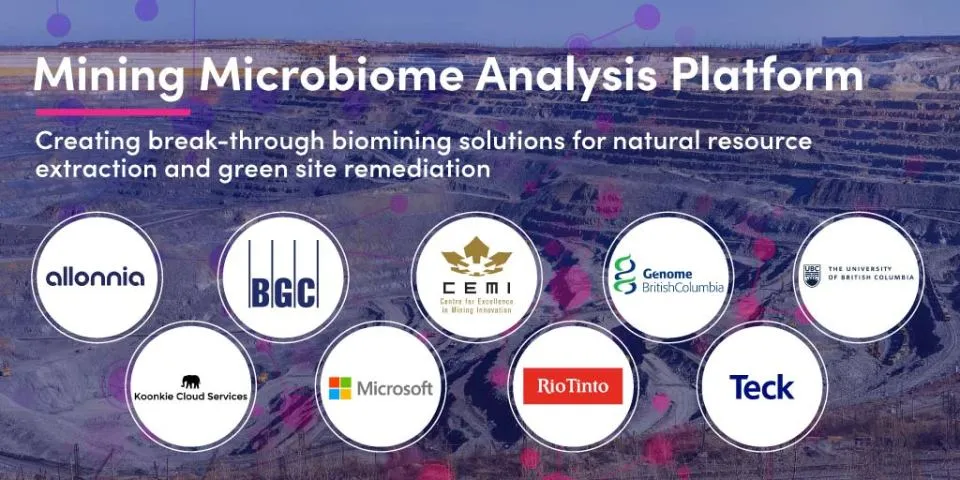UBC Applied Science to help accelerate progress toward "Mine of the Future" in new $16.6M biomining project

Canada's Digital Technology Supercluster, a British Columbia-led consortium of which the University of British Columbia is a founding member, has launched a $16.6 million project aimed at developing "breakthrough biomining solutions" to promote more sustainable mining practices worldwide.
The Mining Microbiome Analysis Platform (MMAP) project will create the first integrated online platform to identify microbes, both naturally occurring and synthetic, that could be used to replace traditional methods of metal and mineral extraction and mine site remediation.
UBC's Bradshaw Research Initiative for Minerals and Mining (BRIMM) played an instrumental role in bringing together the private industry partners, non-profit organizations and academic researchers involved in the project. BRIMM, which operates primarily within the Faculties of Applied Science and Science, is led by Dr. John Steen, the EY Distinguished Scholar in Global Mining Futures at the Norman B. Keevil School of Mining Engineering.

"Changing how the mining industry interacts with the natural world requires broad collaboration so that together, we can create a more sustainable future," said Sue Paish, CEO of the Digital Supercluster. "The Digital Supercluster is proud to see Canadian companies and organizations such as Teck, BGC Engineering, Koonkie Canada, Rio Tinto, UBC, Genome BC, Allonnia, Microsoft and the Centre for Excellence in Mining Innovation lead the way in cleaner natural resource extraction and more responsible site management."
For more information about the MMAP project, please see the announcement on the website of the Digital Technology Supercluster.


